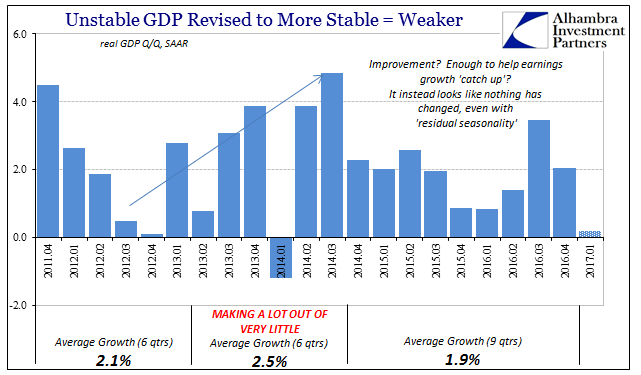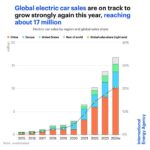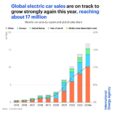
The advance estimate for GDP is scheduled for release tomorrow, and by current estimates it should be a total washout. Yet another first quarter is expected to be a disaster, the fourth in a row and the third straight under the “residual seasonality” regime that was supposed to reveal the hidden economic strength obscured by recent winters. Unlike 2014, however, there was no extended record Polar Vortex, and no massive snowstorms like 2015. With the statistics adjusted anyway, all that is exhausted is the excuses.
The narrative has changed but the economy has not, precisely the global problem. The world awaits a cure for these ills, and will have to continue to wait in good part because of the narrative. While it has shifted to recognize the futility of thinking winter was the problem, it hasn’t shifted nearly far enough to recognize what really is.
To begin with, if Q1 GDP is as low as currently anticipated (the Atlanta Fed’s GDPNow tracking model that has been close in its final publication to each advance GDP estimate figures a truly pathetic quarter, just 0.2% growth) the idea of “improvement” that is driving everything of late loses all rational basis. If it holds like this, it would be a growth rate worse than the worst of last year, meaning near recession conditions. In fact, it was be the worst quarter since Q1 2014 and the Polar Vortex, a very fitting reminder because so much of the economy lately is reminiscent of 2014.

We never truly make any progress because nothing ever changes. As noted yesterday, Ben Bernanke said recently that the outlook has brightened, but that would only be true when compared to the worst parts of last year (and likely not even in terms of GDP). This is a big part of what is holding everything back, these reduced standards that serve to confuse and obscure rather than educate and illuminate. No one wants to be blamed so every small thing is amplified and overly leveraged.
When the ARRA was first passed and implemented, it quickly gained deserved derision for its continuous claim of “jobs saved” because no one could find the expected jobs it was meant to create. It was then, and is now, an appropriate moniker most perfectly describing this economic condition. We are in the “jobs saved” economy, and it is always hyper-analyzed along these lines.
















